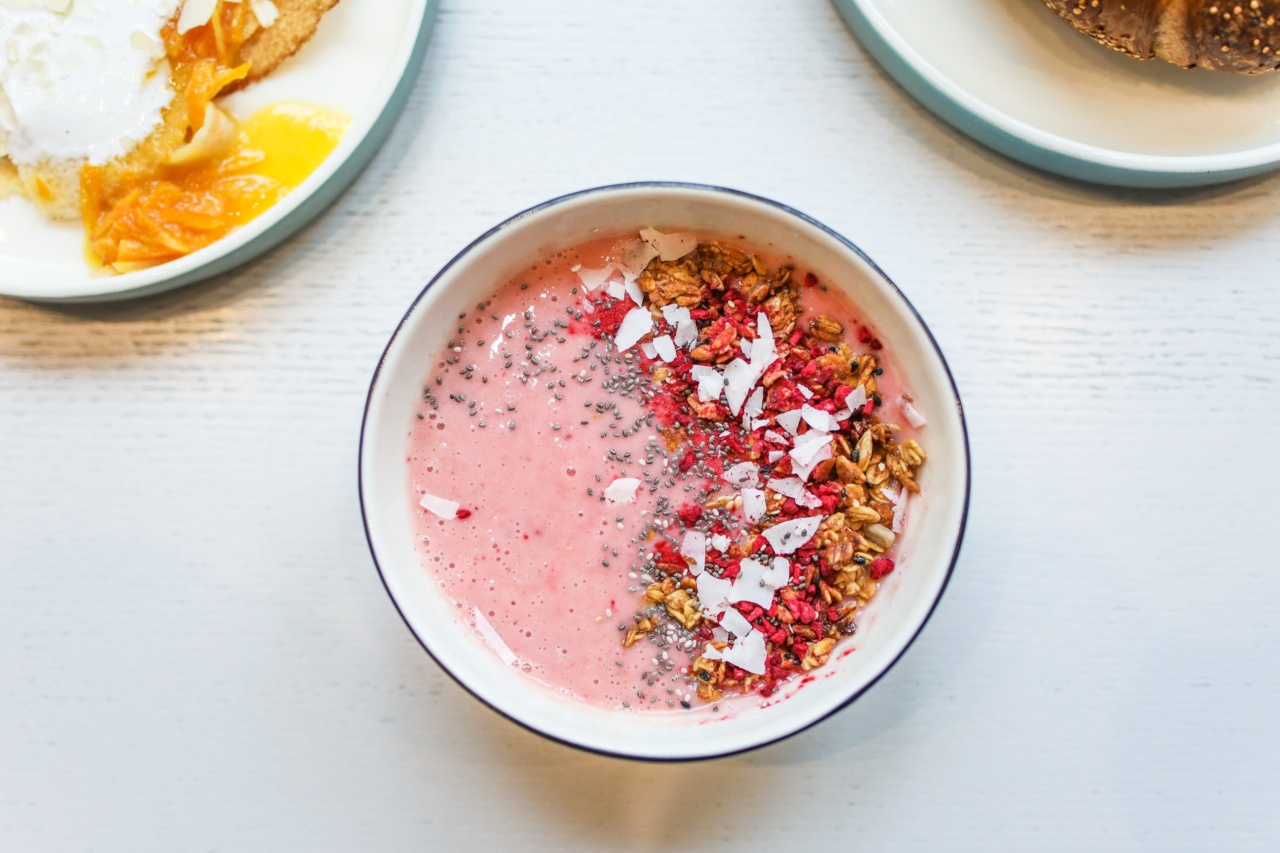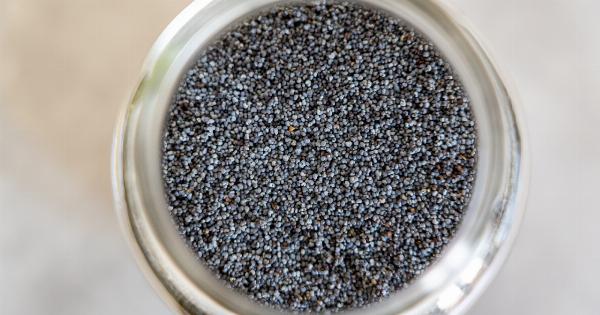When it comes to maintaining good health, many people focus on exercising regularly, eating a balanced diet, and getting enough sleep.
While these practices are certainly important, there is another secret to optimal well-being that often goes overlooked – seeds. Yes, those tiny powerhouses of nutrition can have a significant impact on your overall health. From boosting your immune system to promoting healthy digestion, incorporating a variety of seeds into your daily diet can work wonders.
In this article, we will explore some of the health benefits of different seeds and how you can incorporate them into your meals.
1. Chia Seeds
Chia seeds have gained immense popularity in recent years, and for good reason. These small, black seeds are a nutritional powerhouse, packed with fiber, protein, healthy fats, and various vitamins and minerals.
When mixed with liquid, chia seeds form a gel-like substance due to their high soluble fiber content. This gel helps to slow down digestion, keeping you feeling full for longer and aiding in weight management.
Chia seeds are also rich in omega-3 fatty acids, which are essential for brain health and reducing inflammation in the body. They are also known to improve heart health by lowering blood pressure and cholesterol levels.
Additionally, chia seeds are an excellent source of antioxidants that can protect your body against free radicals, reducing the risk of chronic diseases such as heart disease and cancer.
There are multiple effortless ways to incorporate chia seeds into your diet. They can be sprinkled on top of yogurt, added to smoothies, or used as an egg substitute in baking recipes.
2. Flaxseeds
Flaxseeds are another seed with impressive health benefits. These tiny brown or golden seeds are rich in fiber, healthy fats, proteins, and various essential nutrients.
One of the key health benefits of flaxseeds is their high omega-3 fatty acid content, particularly alpha-linolenic acid (ALA). Omega-3 fatty acids are known to reduce inflammation, improve heart health, support brain function, and even alleviate symptoms of depression and anxiety.
Flaxseeds also contain lignans, which are plant compounds with antioxidant properties. These lignans can help to balance hormones in the body and reduce the risk of certain cancers, particularly breast and prostate cancers.
The fiber in flaxseeds promotes healthy digestion and can prevent constipation. Moreover, flaxseeds have been found to improve skin health, as they nourish your skin cells and reduce dryness and irritation.
To enjoy the benefits of flaxseeds, grind them before consuming. Whole flaxseeds may pass through your digestive system undigested, thus reducing their nutritional benefits.
You can add ground flaxseeds to smoothies, sprinkle them on salads or oatmeal, or incorporate them into baked goods.
3. Pumpkin Seeds
Pumpkin seeds, also known as pepitas, are not only a delicious snack but also highly nutritious. These greenish seeds are a rich source of antioxidants, healthy fats, fiber, and minerals like magnesium, iron, and zinc.
Magnesium is essential for bone health, as well as proper muscle function and heart rhythm.
The high zinc content in pumpkin seeds supports a healthy immune system, improves sleep quality, and promotes overall skin health.
Additionally, pumpkin seeds are known to provide relief from benign prostatic hyperplasia (BPH) symptoms in men and may help prevent certain types of cancer, including breast, stomach, lung, and colorectal cancers. Studies have also suggested that the phytoestrogens found in pumpkin seeds may help alleviate menopausal symptoms in women.
You can enjoy pumpkin seeds on their own as a healthy snack or incorporate them into your meals. They can be added to salads, soups, or homemade granola bars for a delightful crunch.
4. Sesame Seeds
Sesame seeds have been a staple in many cuisines for centuries and are valued not only for their rich, nutty flavor but also for their impressive health benefits.
These small, oval seeds are bursting with essential nutrients such as calcium, iron, magnesium, zinc, and various vitamins.
Calcium is crucial for strong bones and teeth, while iron is essential for producing hemoglobin, the protein responsible for carrying oxygen throughout the body. Magnesium aids in muscle and nerve function, and zinc supports a healthy immune system.
Sesame seeds are also loaded with antioxidants, including lignans and vitamin E, which can protect against cell damage caused by free radicals.
One of the most well-known uses of sesame seeds is in the form of tahini, a paste commonly used in Middle Eastern cuisine. Tahini is delicious as a dip or a spread and can also be used as a base for dressings and sauces.
Sesame seeds can also be sprinkled over salads or added to baked goods for an extra burst of flavor and nutrition.
5. Sunflower Seeds
Sunflower seeds are not only fun to snack on but also offer numerous health benefits. These small, flat seeds are a great source of protein, fiber, healthy fats, and various essential nutrients.
They are rich in vitamin E, which is a powerful antioxidant that helps protect your cells from damage.
One of the key minerals found in sunflower seeds is selenium, which plays a crucial role in thyroid function and supports a healthy immune system.
Additionally, sunflower seeds are packed with magnesium, which helps to calm the nerves and muscles, promoting relaxation and better sleep quality.
Consuming sunflower seeds can also aid in weight management, thanks to their high protein and fiber content that keeps you feeling full for longer.
Sprinkle them over salads, add them to trail mix, or use them as a topping for soups or stir-fries to enjoy their nutritional benefits.
6. Hemp Seeds
Hemp seeds, derived from the cannabis plant, are highly nutritious and incredibly versatile. Contrary to popular belief, hemp seeds do not cause any psychotropic effects.
Instead, they are a great source of plant-based protein, healthy fats, fiber, and essential minerals like magnesium, phosphorus, and potassium.
The protein found in hemp seeds is easily digestible and provides all nine essential amino acids, making it a suitable option for vegetarians and vegans.
Hemp seeds are also rich in omega-3 and omega-6 fatty acids in the ideal ratio, which can help reduce inflammation, improve heart health, and support brain function.
Hemp seeds have a pleasant, nutty flavor that pairs well with both sweet and savory dishes. You can sprinkle them over salads, blend them into smoothies, or use them as a topping for yogurt or cereal.
Hemp seed oil, derived from the seeds, is also a great option for salad dressings.
7. Pomegranate Seeds
Pomegranate seeds, also known as arils, not only add a burst of color to your meals but also provide numerous health benefits. These small, juicy seeds are rich in antioxidants, vitamins, minerals, and fiber.
They are particularly high in vitamin C and vitamin K, which are essential for immune function and blood clotting, respectively.
The antioxidants found in pomegranate seeds can help protect your body against chronic diseases such as heart disease and certain types of cancer.
Additionally, they have been shown to have anti-inflammatory effects, promote digestion, and improve memory and cognitive function.
Pomegranate seeds can be enjoyed on their own as a snack, tossed into salads or grain bowls, or sprinkled over yogurt or desserts for a burst of flavor and nutritional benefits.
8. Poppy Seeds
Poppy seeds, derived from the poppy plant, are tiny but mighty when it comes to health benefits. These seeds are a rich source of essential minerals like calcium, iron, magnesium, and manganese.
They also contain B vitamins, which are crucial for energy production and maintaining a healthy nervous system.
One of the unique compounds found in poppy seeds is called poppy seed oil, which contains high levels of linoleic acid.
Linoleic acid is an omega-6 fatty acid that offers anti-inflammatory properties and positively impacts heart health when consumed in moderation.
Poppy seeds can add a delightful crunch and flavor to a variety of dishes. They are commonly used to top bread, bagels, and pastries. Sprinkle them over salads or stir them into sauces for a unique twist.
9. Quinoa
While quinoa is often mistaken for a grain, it is, in fact, a seed. Quinoa is a complete protein source, meaning it contains all nine essential amino acids. It is also a good source of fiber, B vitamins, iron, magnesium, phosphorus, and potassium.
Incorporating quinoa into your diet can help regulate blood sugar levels, promote heart health, and support healthy digestion.
Quinoa is naturally gluten-free and has a low glycemic index, making it suitable for individuals with gluten sensitivity or diabetes.
Quinoa can be used as a versatile substitute for rice or pasta. It can be enjoyed as a side dish, added to salads or soups, or used as a stuffing in vegetables.
10. Black Seed
Black seeds, also known as black cumin or nigella seeds, have been used for centuries in traditional medicine for their numerous health benefits. These seeds are rich in antioxidants, essential fatty acids, vitamins, and minerals.
Black seeds are believed to have immune-boosting properties and can help reduce inflammation in the body. They have been used as a natural remedy for respiratory conditions, allergies, and digestive issues.
Some studies have even suggested their potential in fighting against cancer cells.
The flavor of black seeds is reminiscent of a blend of onions, oregano, and black pepper. They can be used to season various dishes, such as stews, soups, bread, and curries.
Conclusion
Seeds may be small in size, but their impact on overall health is significant.
Incorporating a variety of seeds into your diet can provide essential nutrients, healthy fats, fiber, and antioxidants that support immunity, heart health, brain function, digestion, and more. From chia seeds to black seeds, each type of seed offers unique health benefits and can be easily incorporated into your favorite dishes.
So, next time you’re looking to boost your well-being, don’t forget to sprinkle some of these powerful seeds into your meals!.






























